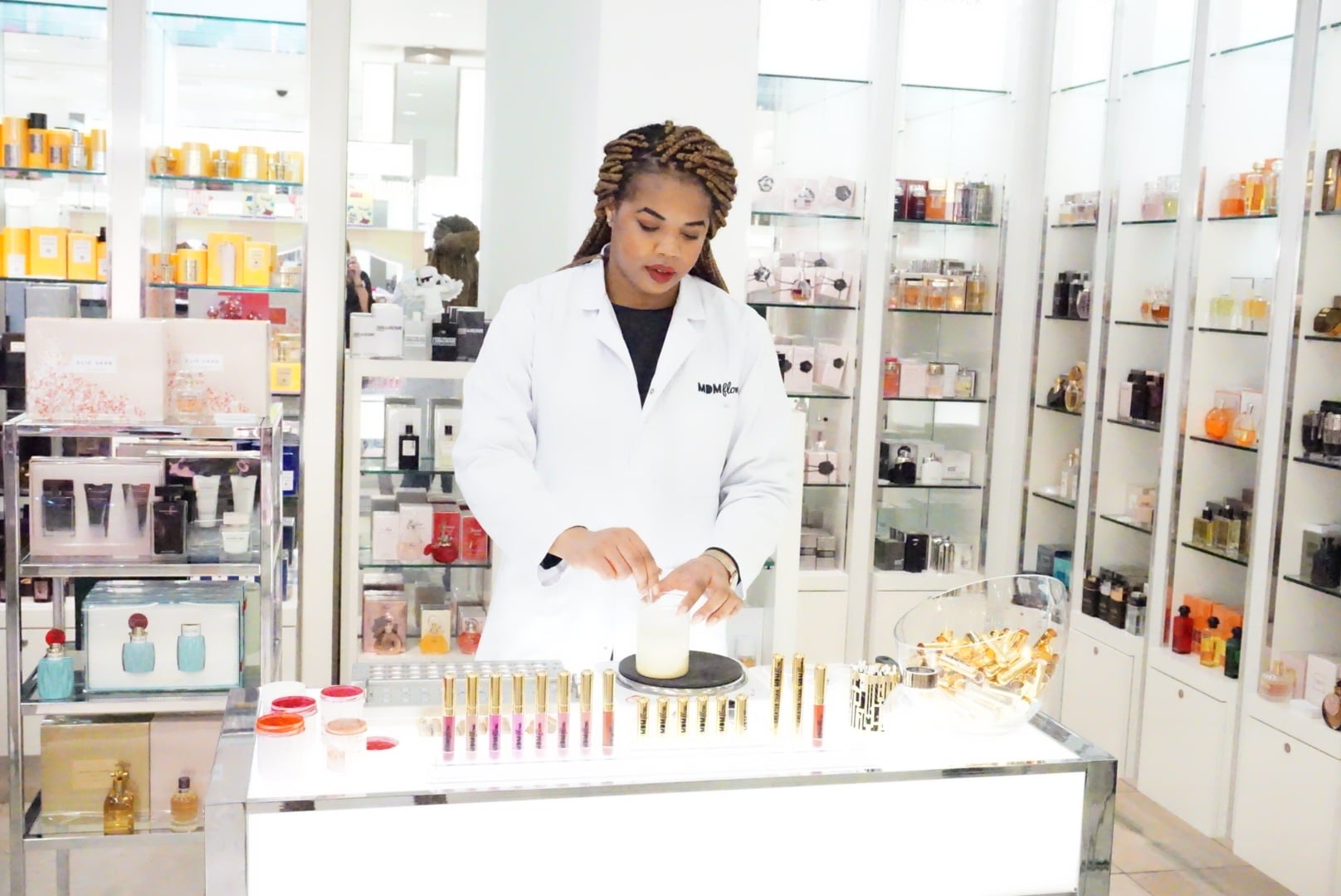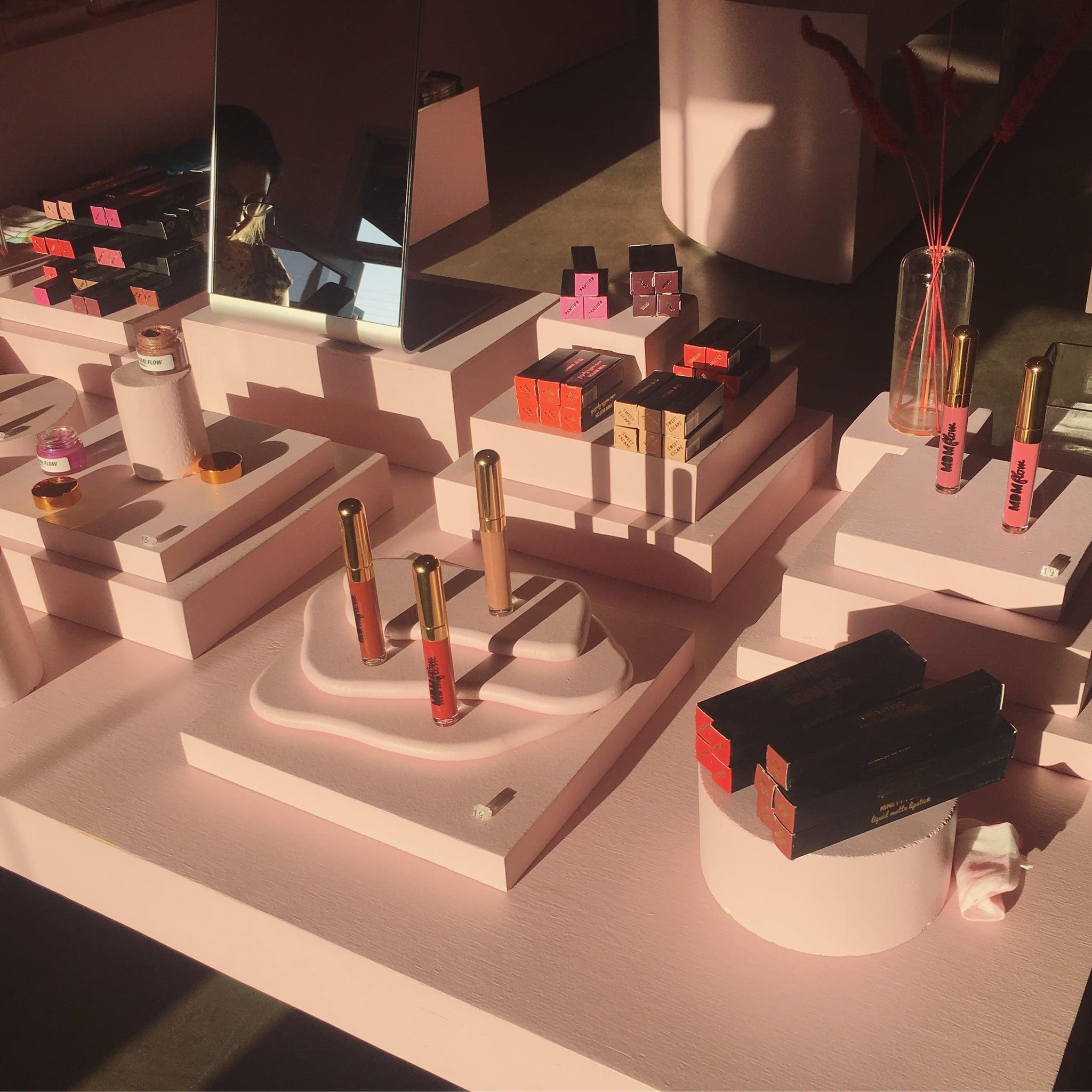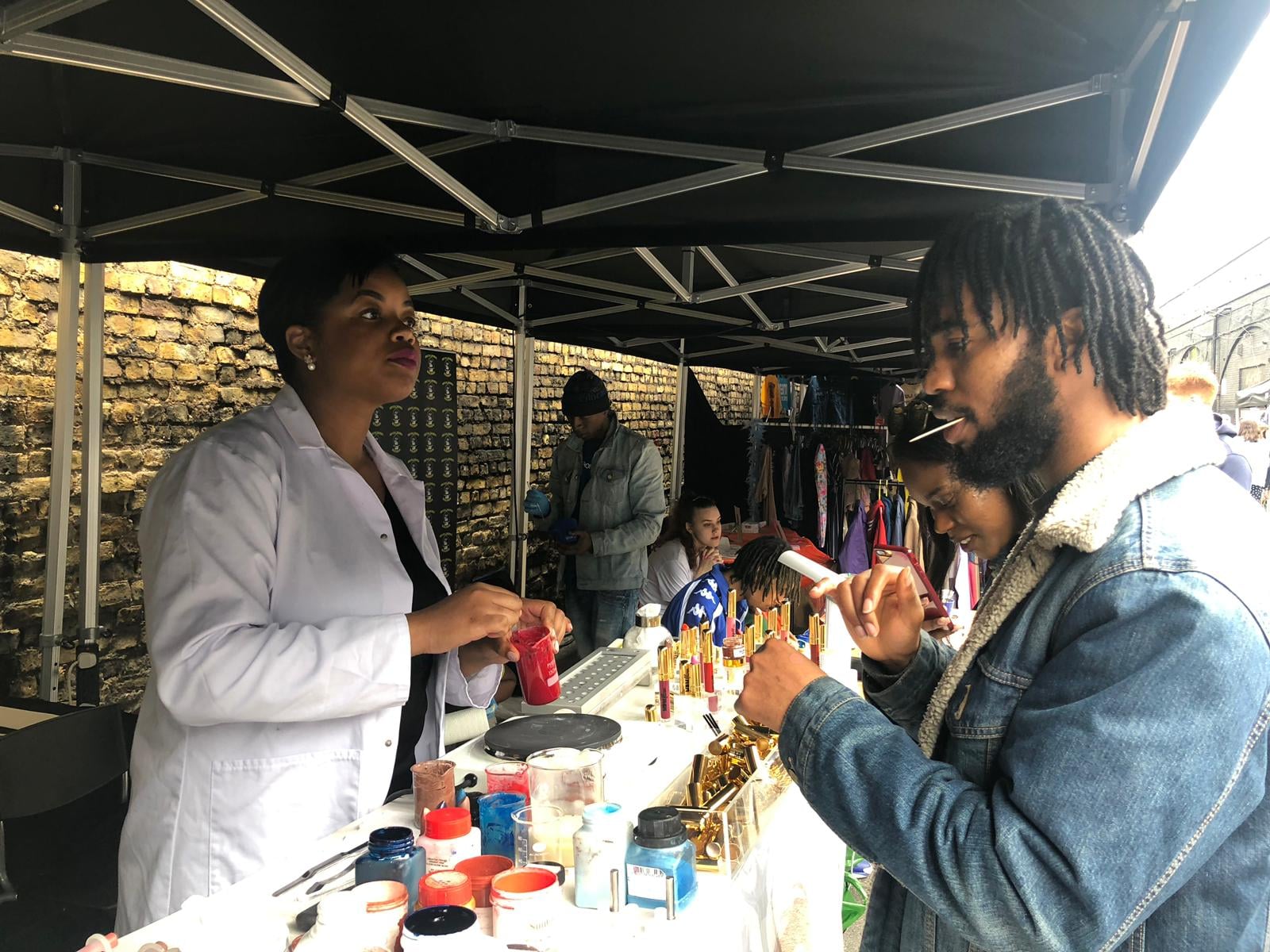Too often, the best beauty stories go Untold, solely based on a person’s skin color, religion, gender expression, disability, or socioeconomic status. Here, we’re passing the mic to some of the most ambitious and talented voices in the industry so they can share, in their own words, the remarkable story of how they came to be — and how they’re using beauty to change the world for the better. Up next: Florence Adepoju, cosmetic scientist and founder of MDMFlow.
As a child, my mom was really into beauty. She sold Avon for a while and then she started using this brand called Fashion Fair. I’m not sure if they still exist, but they were specifically created for Black women. I remember playing around with foundation and the little compact powders, and that was my first exploration of beauty. But it wasn’t a personal thing — I wasn’t like, “Oh yeah, I love beauty so much, I want to work within the industry.” It was just kind of, “Oh, this stuff is really cool, this is really creative.”
My early teenage years were when I personally started paying attention to my relationship with beauty. Around the age of 13, my family moved to Essex, UK, and Essex’s beauty culture — specifically, where I went to school in Dagenham — was very different from my first secondary school in North London.
On the bus, girls were putting on their mascara and doing a full face of makeup. I loved the idea of being able to self-represent, which is something that is still important to me now in terms of putting on a specific look and that being your thing. I feel like you can do that more with beauty than anything else. I remember at that age being so obsessed with glitter mascara especially, because it was the one thing that was so hard to remove when teachers told me to — I absolutely loved it.
Around 16 years old, I’d go into Boots stores with my friends with all of the makeup counters and testers. It was an interesting experience — on the one hand, it was great because there was so much product to play with and test. But on the other hand, not everything was suitable for my skin tone. I could find a really cool nail polish and a nice eyeshadow, but it was hard to find a foundation. That was the first time that I had self-awareness around what the industry is like, and the industry suitability when it comes to different skin tones and different ethnicities. That being said, I still wasn’t like, “Yeah, I’m going to change the beauty world.” I was just taking it in.
In college, I studied biology, chemistry, and art and design. I initially wanted to study pharmacy, but I did two weeks of work experience as a pharmacist and I absolutely hated it. I’d spent all this time thinking I’m going to be a pharmacist and didn’t know what I was going to do instead. Then, I was walking through a shopping center and got stopped by Benefit Cosmetics. I was a bit cheeky and told them that I can try the products, but I can’t afford anything. The lady on the counter then asked if I was looking for a job. I said yes, even though I wasn’t — that was my first job in the beauty industry at 17.
At the time, Benefit Cosmetics was quite new to the UK, but that was really good because, at such a young age, I got so much responsibility. In a weird way, it felt like my mini business, even though it wasn’t. It was at that point I thought I might actually enjoy working in the beauty industry.
During my role at Benefit, I went to the brand’s head office for training. They were talking about the perfumers who created the fragrances and how they designed and developed them. In that moment, I had my eureka moment. I thought, Oh my goodness, there are scientists in this industry. I went home and googled “who makes cosmetic products” and “how to make cosmetic products,” and I found a video on YouTube of students in the cosmetic science program at the London College of Fashion. Immediately I thought, This is it. This is the degree that I need to study and this is going to take me on the path that I need to go on.
I got so much work experience whilst getting my degree. I worked as a marketing assistant in Belgium and I didn’t know anyone so I’d go into stores and start chatting to whoever was there; most of the time I was speaking to the owner of the store. The people in-store talked to me about their day, if they were doing any buying, how they’re merchandising the store, tax law, and so many other areas of managing a business. It was really inspirational for me.
In school, I completed a project about lipstick and color perspective for my degree. I explored how women feel when they have blue lipstick, or purple or yellow, compared with traditional lipstick colors, like nude and red, and how to improve the way color shows on skin so it’s suitable for all skin tones. This slowly evolved from my dissertation to the early stages of my business. I graduated in July 2013 and launched my company in August.
After launching, I asked my university if I could develop ideas using their facilities but they said no, so I took over my parent’s shed. It was big, with a table and chairs and everything. I got a lot of lab equipment from Amazon and eBay, reached out to suppliers, and I set up shop for MDMFlow. MDM stands for Madame and Flow, because obviously my full name is Florence and my mum used to call me Madam Flow. I also remember thinking if I call my business MDMflow then I don’t have to set up any new social media pages — my username used to be Madame Flow when I first signed up for Twitter, then I got off the app and when I came back Madame Flow was taken, so I changed it to MDMflow. I just kind of ran with the name.
Since beginning my business, I’ve also created a skin-care line, Flow Beauty Co., which launched in 2019. That suddenly picked up over the last year with people being at home. Initially, we only had one product, which is the Everything Oil, but we recently put out soaps and now we’re working on a full collection. Working on two brands at the same time is intense, but I don’t want to say it’s overwhelming because I really enjoy it.
Now, I feel there’s still a long way that the beauty industry needs to go in terms of inclusion, but it’s not so much of a gaping hole. That gap is closing when it comes to products that aren’t suitable for everyone. So, now, I look at my business like a 2.0 version of itself and ask myself, “Okay, now imagine if suitability of color is the standard — what’s next?” That’s where we are now — it comes down to formula technology and how a product performs.
I turned 30 a few weeks ago, so I’m thinking about what the next decade is going to be like. I think for me on a personal level, away from the business, I just want to be more visible as a cosmetic scientist. Because of my background, I don’t really see there ever being a time where my fingerprint won’t be in product development. I really want to promote the science when it comes to my products, and I want to promote science, just in general. More and more people are Googling ingredients; they want to know what’s in their product; they want to know what works. So, I want to put out more products that functionally do what people want and be able to also explain to them the science behind it.
Source: Read Full Article



